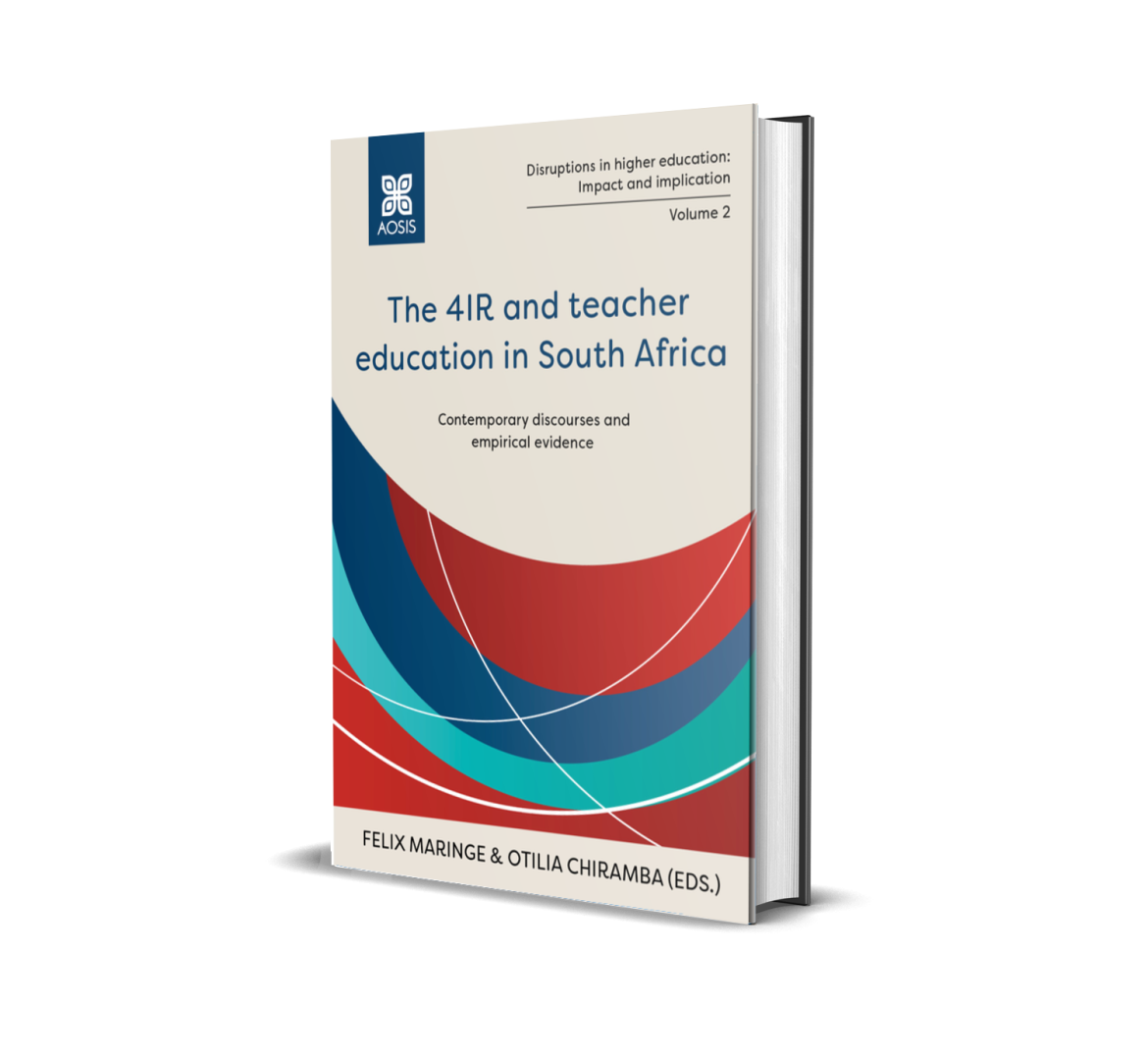The 4IR and teacher education in South Africa: Contemporary discourses and empirical evidence is published by AOSIS Scholarly Books. The 4IR has become an overarching framework within which education systems, including teacher education, are operating. Contingent upon the ideology of neo-liberalism, the 4IR seeks to transform societies in ways which respond to the relentless developments in technology, the Internet and digital capacities which, by design and intent, are purposed at increasing both productivity and the associated quality while at the same time reducing human intervention in the same processes. In teacher education, how we teach and train student teachers will be substantially influenced by the imperatives of the 4IR.
There are multiple unresolved questions as the 4IR takes centre stage. For example, what will it mean for teaching and learning in schools that have severe technological and digital deficits; for teachers and students who have minimal technological literacies; for delivering high-quality teaching and learning; for transforming both the content and pedagogies of teacher education and, above all, for delivering socially just educational experiences for all our learners, regardless of class, race, and privilege. The discourse of the 4IR is contemporary and requires multiple perspectives to explore what it means in different contexts and settings, the understandings it engenders in people, what it implies across a wide range of educational decision-making levels, and that its fundamental assumptions cohere with national and societal assumptions about equality, equity and social justice. Multiple methodological approaches were utilised in the interrogation of the idea of the 4IR in teacher education in South Africa, including theoretical, empirical, and small-scale case studies, amongst others. The data these approaches provide are equally valued based on the purposes for which they have been derived.
Copyright (c) 2022 Felix Maringe, Otilia F. Chiramba (Volume editor)
This book is a one-stop shop for 4IR in teacher education in South Africa. The authors put together knowledge systems about technologies in the 4IR as they are applied to teacher education in the context of South Africa. Any reader of this book will gain knowledge of challenges, constraints, possibilities, theories, methodologies and software in 4IR. The chapters provided views on the technological advances from the First, Second and Third Industrial Revolutions, from previous ages to the present. The writers provide definitions, methodologies, theoretical frameworks and examples from disciplines. Furthermore, the history of teacher education in South Africa, culture, contemporary debates, development models, human dignity and equality matters were discussed. Moreover, there is a wealth of knowledge that includes different new ways of sharing knowledge, for example via Teams, Zoom and other social learning platforms. A new thinking about how to move forward with Teacher Education in the 4IR aspects of artificial intelligence, robotics, blockchain technology, quantum computing, nanotechnology, and Internet of Things is outlined.
Prof. Mapula Gertrude Ngoepe, Department of Mathematics Education, College of Education, University of South Africa, Pretoria, South Africa

